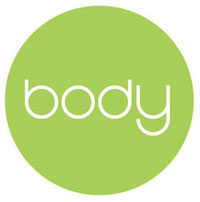

Eating Well
Being Active
Getting Good Sleep
Taking Care of Your Changing Body
Seeing Your Doctor
Getting Good Sleep
Getting enough sleep makes a big difference on how well everything in your life goes.
How Much Sleep Do I Need?
From How Much Sleep Do I Need? @TeensHealth.org
Most teens need about 8½ to 9 hours or more of sleep each night. Getting enough sleep is often difficult for teens because brain patterns change in adolescence so that you don’t feel tired as early as you did when you were younger. We aren’t aware of it, but while we sleep our brains and bodies are processing everything that happened to us during the day -- physically, mentally and emotionally. That’s why getting sound sleep is so critical to reenergizing your mind and body. Read more...
More answers to teen’s questions about sleep from TeensHealth:
Bad Dreams? A Few Things to Try
Adapted from Guidelines for Better Sleep, Psychology Tools, CC-BY-NC 4.0
If you have a lot of bad dreams, it is important that you bring it up to your social worker, therapist, doctor or another trusted adult so that you can get the help you need to resolve them.
How do you cope with bad dreams in the meantime? Psychologists recommend a few things you might want to give a try:
- Prepare yourself in case you have bad dreams by thinking of a bad dream then think of a different ending for it. Practice this new ending many times before going to sleep.
- Before going to sleep prepare to re-orient yourself when you wake from a bad dream.
- Put a damp towel or a bowl of water by the bed to splash your face, place a special object by the bed, such as a photograph, or a small soft toy.
- Practice imagining yourself waking up from a bad dream and reorienting yourself to the present, to safety, by splashing your face, touching a special object, smelling something with a scent that brings you comfort, going to a window or getting up to look at a picture that brings you peace.
- When you wake up from a bad dream, move your body if you can and reorient yourself immediately by touching a comforting object, wetting your face with a cloth, going to the window, or talking to yourself in a reassuring way.
Healthy Sleeping for Teens
Learn more from TeenMentalHealth.org about how sleep affects you physically and psychologically and get help thinking through what might be interfering with your sleep. Check out their description of “box breathing” and “progressive relaxation” at the end of the handout.
Checklist for Better Sleep
Adapted from Checklist for Better Sleep, Psychology Tools, CC-BY-NC 4.0
Things that are known to make sleep worse
- Watching television in bed
- Use a device with a bright screen in the hour before bedtime
- Consuming drinks containing caffeine (tea, coffee, cola, energy drinks, hot chocolate)
- Eating a big meal less than 3 hours before bedtime
- Staying in bed if you can’t fall asleep (more helpful to get up and do something else for a bit rather than tossing and turning)
Things that are known to improve sleep
- Setting aside 15 minutes of “worry time” once or twice each day to write down any issues that are bothering you, then leaving the worries until your next scheduled “worry time” (make sure your worry time is at least one hour before bedtime)
- Relaxation exercises (relaxed breathing, progressive relaxation techniques, other)
- Having a relaxing bedtime routine (take a bath or shower, have a mug of warm milk with honey, read a book, listening to soothing music)
- Setting up conditions for good sleep (dark room, comfortable bed and pillow, cool room with blankets)
Sleep Hygiene
Print this one-pager if you want to keep a simple list of do’s and don’ts for better sleep handy.
7-DAY CHALLENGE – What’s Keeping You Up?
Try using this Sleep Diary for a week to see if you can discover what might be keeping you from getting good sleep. The log is split into two halves—one to be completed first thing in the morning, and the other just before bed at night.